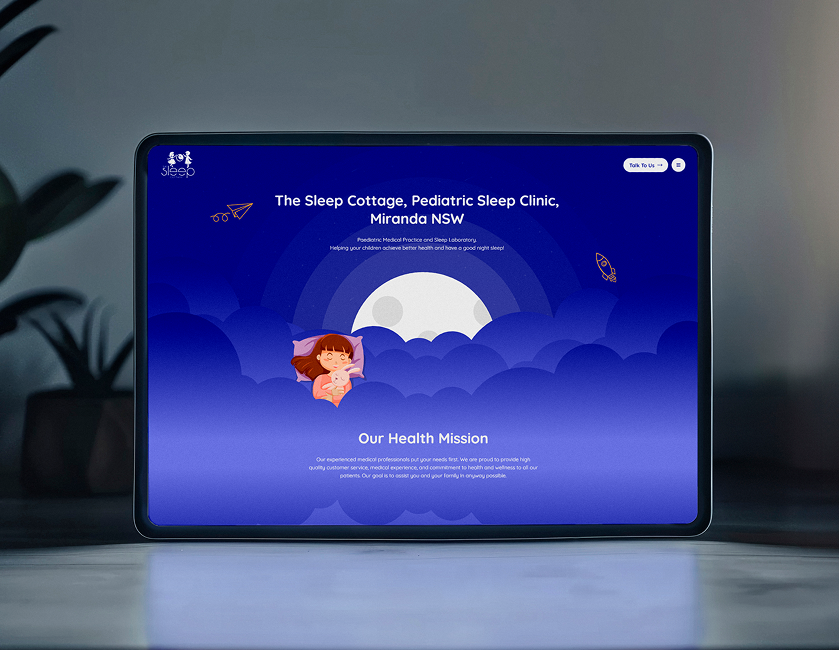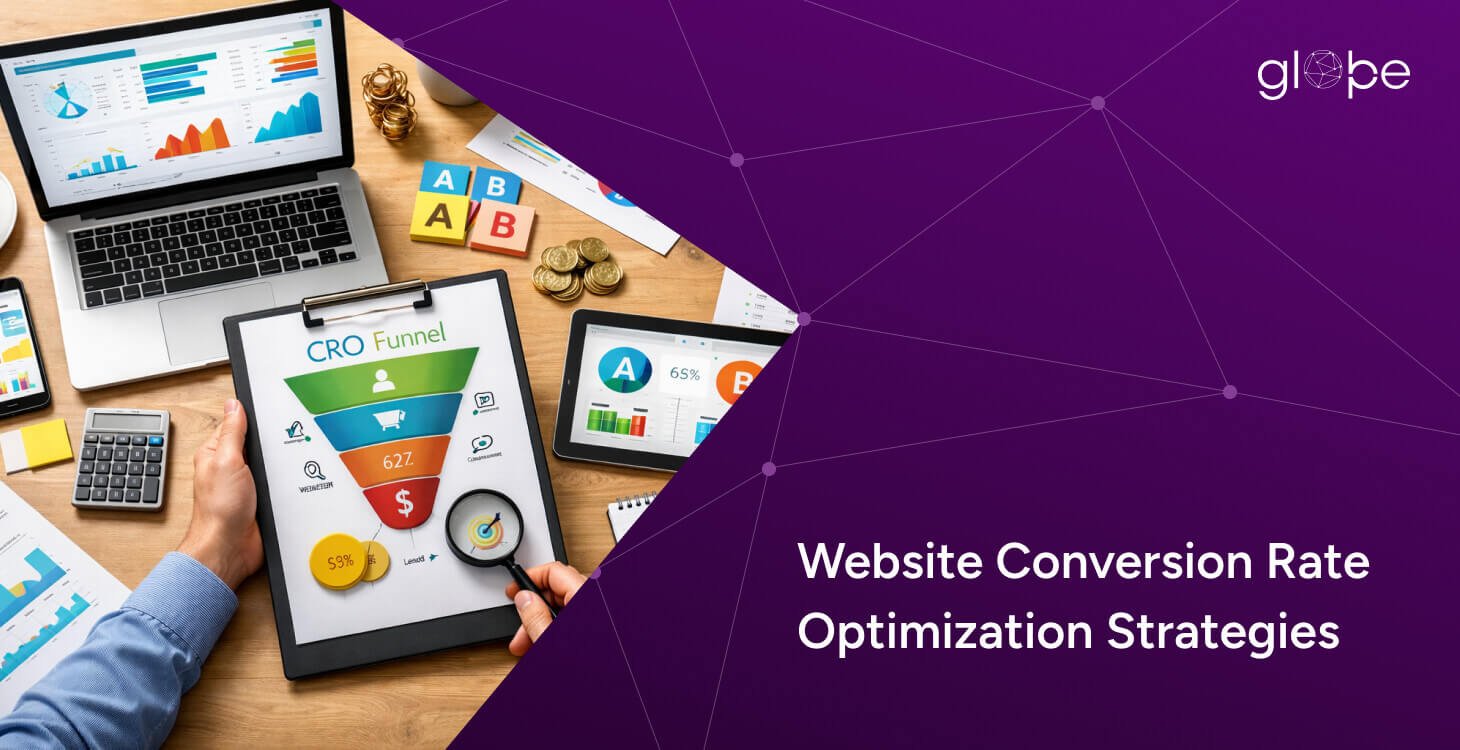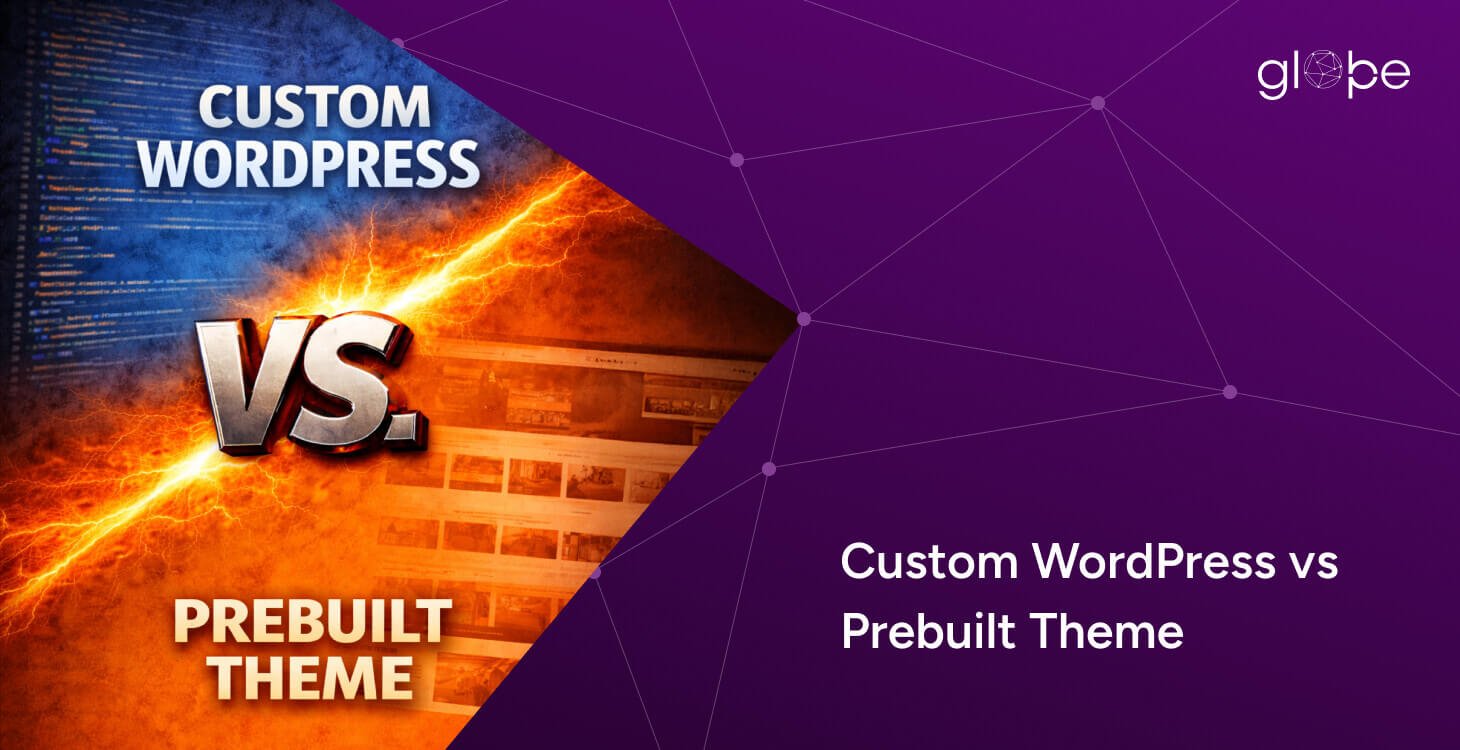
When it comes to building powerful, dynamic websites, PHP has long been one of the go-to programming languages for developers around the globe. Powering everything from small blogs to large e-commerce platforms, PHP continues to be a cornerstone of web development. Its flexibility, speed, and scalability make it an ideal choice for creating server-side applications.
However, while PHP itself is robust, the key to maximizing its potential lies in leveraging PHP frameworks. These frameworks provide developers with ready-made structures that streamline development, ensuring faster deployment, better security, and more maintainable code. With frameworks offering a variety of tools for everything from database management to user authentication, they save developers the hassle of reinventing the wheel on every project.
In this blog, we’ll dive into the top PHP frameworks for web development in 2025. We’ll explore their unique features, strengths, and why they stand out in today’s fast-paced development environment. Whether you’re working on a simple website or a complex web application, understanding the best PHP frameworks can help you make more informed decisions about your next development project.
Why PHP Frameworks Matter in 2025
In 2025, PHP frameworks are more essential than ever for web developers looking to stay ahead of the curve. While PHP itself is a powerful tool for server-side programming, frameworks build on that foundation, offering a structured approach to coding that not only saves time but also enhances the overall development process. Let’s break down why using a PHP framework is such a smart choice in today’s development world.
Speed and Efficiency
One of the biggest advantages of using a PHP framework is the speed at which you can develop your application. Frameworks come packed with built-in functionalities like authentication systems, session management, and routing, all of which would otherwise require you to code from scratch. This ready-made structure allows developers to focus on building unique features rather than reinventing the wheel. Whether you're developing a simple blog or a feature-rich application, a framework enables faster deployment, ultimately getting your project to the market sooner.
Improved Security
Security is a top concern for any web development project. PHP frameworks incorporate best security practices out-of-the-box, such as protection against common vulnerabilities like SQL injection, cross-site scripting (XSS), and cross-site request forgery (CSRF). Many frameworks also come with robust tools for password hashing and user authentication, making it easier to secure sensitive data and reduce the risk of data breaches. By using a PHP framework, you’re essentially building on a security-conscious foundation that has been tested and optimized by the developer community.
Scalability
As your website or application grows, so too will your need for scalability. PHP frameworks are designed to handle large-scale projects, allowing you to add new features, handle more traffic, and expand functionality with ease. Whether you're building an e-commerce platform or a social media site, a framework ensures that your code remains clean and maintainable, making it simpler to scale as the project evolves. With modular components, PHP frameworks allow developers to extend applications without compromising performance.
Modern Development Needs
Today’s development environment demands more than just static websites. Mobile responsiveness is a must-have, and PHP frameworks offer tools to ensure that your site works seamlessly on mobile devices. Additionally, with the increasing reliance on third-party services, API integration has become a fundamental part of modern web development. PHP frameworks come equipped with built-in support for integrating with APIs, making it easier to create feature-rich applications that communicate with other platforms, such as payment gateways, social media, and external data sources.
Top PHP Frameworks for Web Development in 2025
Laravel for Web Development
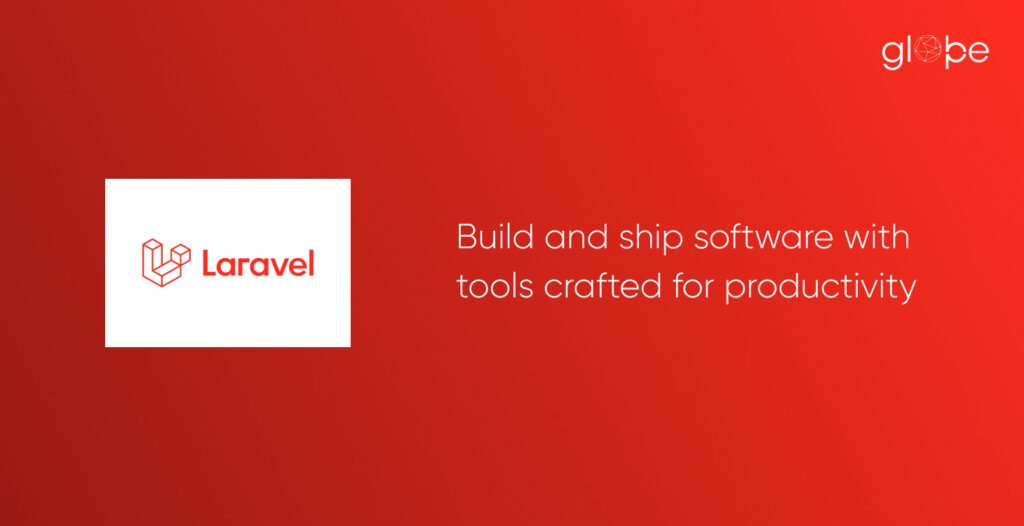
Laravel has consistently ranked as one of the most popular and widely-used PHP frameworks, and for good reason. It strikes the perfect balance between simplicity and powerful features, making it a go-to choice for developers worldwide. Whether you’re a beginner or an experienced developer, Laravel offers an intuitive, developer-friendly syntax that makes building modern web applications a breeze. As businesses continue to rely on Laravel to build scalable, secure, and high-performing applications, Glopbe’s expert Laravel development services can help you create robust and scalable applications tailored to your needs.
Key Features
MVC Architecture: Laravel’s Model-View-Controller (MVC) architecture ensures that your code remains clean, organized, and easy to maintain. This separation of logic into different layers helps manage complex applications more efficiently and supports better debugging and scalability.
- Eloquent ORM: Laravel’s Eloquent ORM (Object-Relational Mapping) simplifies database interactions. It uses an easy-to-understand ActiveRecord implementation, where database records are represented as objects, allowing developers to perform database operations seamlessly and with minimal effort.
- Blade Templating Engine: Blade is Laravel’s lightweight templating engine, designed for speed and efficiency. It enables developers to create dynamic and clean views without the overhead of traditional PHP templating. Blade allows you to work with template inheritance, conditional statements, and loops in a concise and readable manner.
- Artisan Command-Line Interface (CLI): Laravel’s built-in CLI tool, Artisan, helps automate repetitive tasks and simplifies common development processes such as database migrations, testing, and queue management. This increases productivity and allows developers to focus more on coding rather than routine tasks.
- Built-in Authentication & Authorization: One of Laravel’s standout features is its built-in user authentication and authorization system. Out-of-the-box, it provides secure login systems, user registration, password recovery, and even role-based access control, saving developers time and effort in implementing security features.
- Laravel Echo: Laravel Echo is a powerful feature for building real-time, event-driven web applications. It allows developers to broadcast real-time events across web applications with ease, which is ideal for chat applications, notifications, live updates, and more.
Use Cases
Laravel is perfect for building robust, scalable web applications. Its flexibility makes it an excellent choice for various types of projects, including:
- eCommerce Sites: Laravel’s clean architecture, security features, and ability to handle large amounts of traffic make it ideal for building high-performance e-commerce platforms.
- CMS Platforms: With Laravel’s customizable architecture and ready-to-use modules, developers can quickly build content management systems tailored to a client’s needs.
- Social Networks: The real-time capabilities of Laravel, combined with its scalability, make it a solid choice for building social media platforms and community-driven websites.
Why It’s Popular in 2025
Laravel continues to reign supreme in 2025 due to its developer-friendly syntax, robust ecosystem, and constant updates. It offers a wide range of features right out of the box, which means developers can start building quickly without worrying about reinventing basic functionality. The Laravel community is also highly active, ensuring that developers have access to up-to-date resources, packages, and support.
Whether you’re building a small-scale application or a large enterprise solution, Laravel’s scalability and versatility ensure that it remains a top choice. It’s a framework that grows with your needs, and with features like built-in authentication, real-time broadcasting, and easy database management, it continues to be the go-to framework for developers in 2025
Symfony for Web Development

Symfony is one of the most powerful and flexible PHP frameworks available, renowned for its ability to create large-scale, complex web applications. While it requires a bit more technical knowledge to master compared to some other frameworks, it offers unmatched customization options and a high degree of flexibility. Symfony is built with the enterprise developer in mind, making it ideal for applications that need to scale and adapt to changing business needs.
Key Features
- Component-Based Architecture: Symfony’s architecture is based on reusable components, meaning that developers can use parts of the framework independently of the whole. This modular approach allows you to customize the framework to suit your project’s needs and incorporate just the pieces that make sense for your application.
- Twig Templating Engine: Twig is Symfony’s templating engine, designed to provide a clean and readable syntax. It offers advanced features like template inheritance, safe output escaping, and automatic translation support, making it ideal for building dynamic and secure web applications.
- Built-in Security: Symfony comes with robust security mechanisms, such as encryption, user authentication, and authorization. It also includes measures to prevent common security vulnerabilities like cross-site scripting (XSS) and SQL injection, ensuring that your application is secure from the start.
- RESTful API Support: Symfony is an excellent choice for building modern, API-driven applications. It includes support for creating RESTful APIs out of the box, which is especially important as web applications continue to rely on third-party integrations and mobile applications that require seamless data exchange.
- Doctrine ORM: Symfony’s integration with Doctrine ORM provides an easy way to interact with databases. Doctrine supports advanced querying capabilities, relationships between entities, and automatic migrations, making it easier to manage data storage and retrieval.
- Flexible Routing: Symfony’s routing system is highly flexible, allowing you to define custom routes and parameters, as well as create URL patterns that fit your specific requirements. It also supports RESTful routing, making it great for creating API endpoints.
Use Cases
Symfony shines in creating large-scale, complex web applications where performance, flexibility, and scalability are crucial. Some of the most common use cases include:
- Enterprise Applications: Due to its modular design and extensive features, Symfony is often the framework of choice for enterprise-level solutions. It is built to scale and can handle applications with high traffic, large databases, and intricate business logic.
- Custom Web Applications: Symfony is perfect for building custom, tailored applications that require flexibility. Its modular architecture allows you to build complex systems that meet specific business requirements, without being constrained by predefined rules.
- eCommerce Platforms: Symfony is a robust choice for building e-commerce websites and platforms that require custom features, high security, and reliable performance. Its flexibility enables developers to design and scale solutions with ease.
Why It’s Popular in 2025
Symfony continues to be a leading PHP framework in 2025 because of its flexibility, scalability, and enterprise-level features. Its component-based structure and extensive ecosystem make it highly customizable, meaning developers can build almost any kind of web application. While it has a steeper learning curve compared to other frameworks, the trade-off is well worth it for teams working on large-scale or highly specialized projects.
Thanks to its active community, excellent documentation, and regular updates, Symfony remains the go-to choice for developers working on complex and performance-sensitive applications. If you're aiming to build an enterprise-grade application that can handle a large user base and complex business processes, Symfony is the framework to consider.
CodeIgniter for Web Development
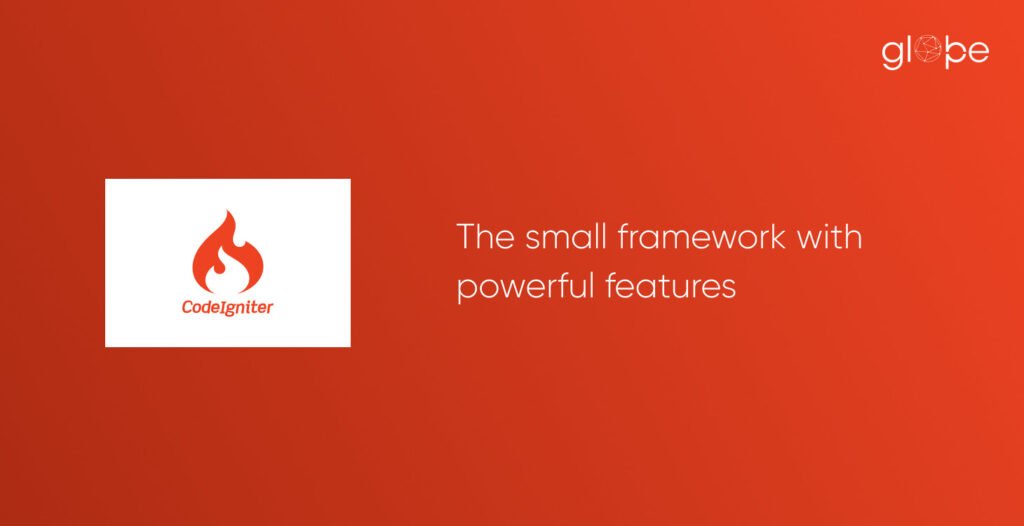
CodeIgniter is a lightweight PHP framework that is known for its simplicity, performance, and speed. Unlike some of the more feature-packed frameworks, CodeIgniter offers a minimalist approach, allowing developers to get projects off the ground quickly without having to deal with complex configurations. It’s an excellent choice for developers who want a straightforward, hassle-free framework that doesn’t get in the way of development.
Key Features
- Small Footprint: One of the main selling points of CodeIgniter is its small footprint. It’s a lightweight framework, which means it doesn’t use up a lot of system resources. This makes it a great option for developers who need a fast and efficient framework that doesn’t require a lot of server resources.
- No Configuration Required: CodeIgniter is known for its easy setup. Unlike other frameworks that require extensive configuration, CodeIgniter comes with minimal configuration out-of-the-box. This allows developers to start coding immediately without spending time configuring libraries and settings.
- Built-In Security: Despite its lightweight nature, CodeIgniter doesn’t compromise on security. It includes several built-in security features, such as XSS filtering, CSRF protection, and encryption, which help protect web applications from common vulnerabilities.
- Active Record Database Support: CodeIgniter provides an Active Record implementation for interacting with databases. This allows developers to perform database operations with simple, readable syntax, which is especially useful for those who are new to database management.
- Routing: CodeIgniter comes with a powerful routing system that lets you easily create SEO-friendly URLs. You can also define custom routes, which gives you the flexibility to structure URLs based on your application’s needs.
- Rich Documentation: CodeIgniter has one of the most comprehensive and accessible sets of documentation in the PHP ecosystem. This helps developers quickly understand and leverage its features, making it easier to troubleshoot issues and implement new functionalities.
Use Cases
CodeIgniter is a solid choice for building simple to medium-sized applications. Its speed and simplicity make it ideal for projects where time-to-market is crucial. Some common use cases include:
- Small to Medium-Sized Websites: CodeIgniter is perfect for developers who need to get a website or web application running quickly. Its minimal setup and easy configuration make it a go-to choice for simple web applications that don’t require complex features.
- Prototyping and MVPs: CodeIgniter is ideal for creating prototypes or Minimum Viable Products (MVPs). Its lightweight nature and fast development process make it great for projects that need to be developed quickly and with less overhead.
- API Development: CodeIgniter is also a great choice for building RESTful APIs. Its simple routing and Active Record database support make it easy to handle requests, process data, and send responses, making it suitable for API-driven applications.
Why It’s Popular in 2025
CodeIgniter remains popular in 2025 because of its simplicity, speed, and ease of use. It’s the perfect choice for developers who don’t need the bloat of more feature-heavy frameworks like Laravel or Symfony but still want a solid, reliable framework to build applications quickly. Its ability to offer just the essentials, combined with a fast development cycle, makes it ideal for rapid application development.
Although it may not have as extensive a feature set as some of its competitors, CodeIgniter is still highly relevant in 2025 for small-scale projects, prototypes, and API development. Its active community and simple, straightforward approach ensure it remains a popular choice for developers looking to create web applications with minimal complexity.
Zend Framework for Web Development

Zend Framework is an enterprise-ready, object-oriented PHP framework that is designed for building robust, high-performance applications. Known for its extensibility and flexibility, Zend is a go-to solution for large-scale web applications that require customization, reliability, and integration with complex systems. With its modular architecture and extensive support for third-party libraries, Zend is favored by developers working on mission-critical applications.
Key Features
- Enterprise-Level Solutions: Zend is built to handle complex, enterprise-level applications. It offers everything from database abstraction layers to advanced caching mechanisms, making it ideal for building large-scale solutions that need to scale efficiently.
- Extensible & Modular: Zend provides developers with the flexibility to use only the components they need for a project. This modular approach allows you to pick and choose the components (such as authentication, caching, or mail) that are most relevant to your project, without adding unnecessary overhead.
- MVC Architecture: Like many other modern PHP frameworks, Zend follows the MVC (Model-View-Controller) architecture, which promotes a clean and organized separation of concerns in your codebase. This makes it easier to maintain and scale applications as they grow.
- Database Support and ORM: Zend has support for a range of database systems and includes its own Object-Relational Mapper (ORM). It integrates seamlessly with MySQL, PostgreSQL, and SQLite, and allows developers to manage complex database interactions through an object-oriented interface.
- Security Features: With security being a priority, Zend Framework comes with built-in features such as cross-site scripting (XSS) protection, SQL injection prevention, and data validation. It also offers support for OAuth and LDAP, allowing for secure and flexible user authentication and data handling.
- Support for RESTful Services: Zend is a great option for building RESTful APIs. It comes with tools to create and manage RESTful services, which is ideal for developers building web apps that need to communicate with mobile apps, third-party systems, or other services.
Use Cases
Zend is most suitable for large-scale, enterprise-level applications where performance, security, and flexibility are crucial. Common use cases include:
- Enterprise Applications: Zend is often used in the development of enterprise-level applications such as CRM systems, ERP solutions, and business management tools. Its scalability and robustness make it perfect for businesses that need customized, high-performance solutions.
- SaaS Platforms: Zend’s modular approach and high level of customization make it a great choice for building Software as a Service (SaaS) applications that need to scale as their user base grows.
- Complex Web Applications: Whether it’s an e-commerce platform, an online collaboration tool, or a customer portal, Zend is capable of handling complex functionality and large amounts of data, making it an ideal choice for web apps with advanced features and high user traffic.
Why It’s Popular in 2025
Zend remains a top choice in 2025 for developers working on enterprise-level applications due to its extensibility, flexibility, and robust security features. The framework’s modularity allows developers to tailor their applications by using only the components they need, while the MVC architecture ensures the codebase remains organized and maintainable. It’s a perfect fit for large, data-heavy applications that need to perform at scale.
Moreover, Zend’s active community and strong backing from the parent company (Zend Technologies) ensure that it stays up-to-date with the latest industry trends and security updates. Whether you’re building a SaaS application, an e-commerce platform, or an enterprise solution, Zend remains one of the most reliable and scalable PHP frameworks available.
Phalcon for Web Development
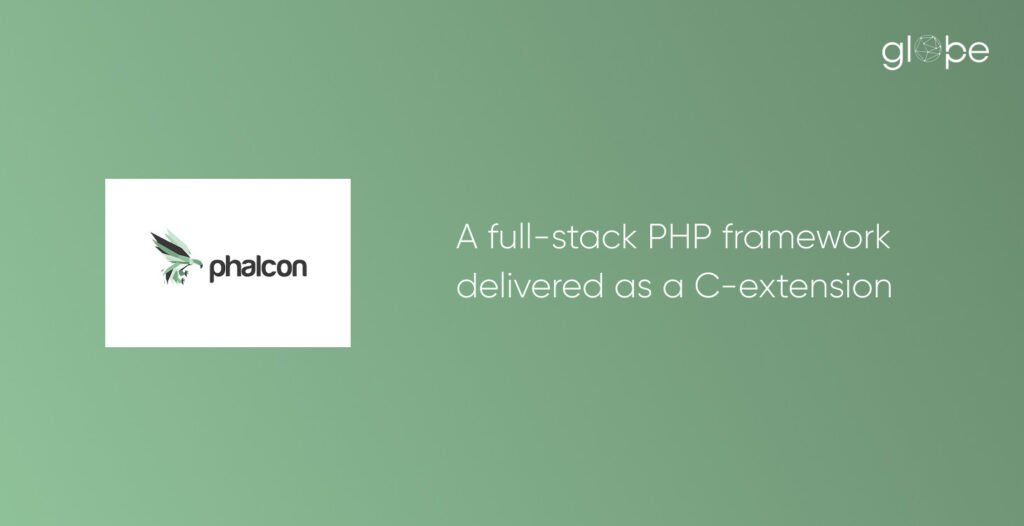
Phalcon is a high-performance, compiled PHP framework that’s designed for speed and low resource consumption. Unlike traditional PHP frameworks, Phalcon is implemented as a C extension, which allows it to execute faster than most frameworks. This makes it a standout choice for developers who require high-performance websites that can handle large volumes of traffic with minimal server resources.
Phalcon’s unique architecture ensures that developers can build scalable and lightning-fast web applications without compromising on features. Despite its high performance, Phalcon still offers all the capabilities you’d expect from a modern PHP framework, such as an MVC structure, ORM, and routing.
Key Features
- Compiled for Speed: The most significant advantage of Phalcon is its compiled nature. It is delivered as a C extension, making it one of the fastest PHP frameworks in existence. This high-performance nature allows developers to build applications that are optimized for handling thousands of requests per second, making it ideal for high-traffic websites.
- MVC Architecture: Like most modern PHP frameworks, Phalcon follows the MVC (Model-View-Controller) pattern, which helps keep the application structure organized and scalable. This separation of concerns allows developers to maintain clean, modular code that’s easy to update and extend.
- ORM (Object-Relational Mapping): Phalcon offers a robust ORM for database interaction, which simplifies database queries and allows developers to work with databases in an object-oriented manner. It supports relationships, querying, and more, helping developers manage data efficiently and intuitively.
- Dependency Injection: Phalcon comes with a dependency injection container, which allows for better organization and management of components. This enables you to easily swap out services without impacting the rest of the application, promoting loose coupling and easier testing.
- Caching System: Phalcon’s caching system is one of its key features. It offers several caching mechanisms (memory, file, etc.), which helps improve the performance of the application by storing frequently accessed data in memory, reducing database load.
- Extensive Documentation: Phalcon comes with detailed and comprehensive documentation, which is crucial for developers who want to get up to speed quickly. Whether you're a beginner or a seasoned developer, the documentation is clear and helps you make the most of Phalcon’s capabilities.
Use Cases
Phalcon is well-suited for building high-performance, scalable web applications. Here are some common use cases:
- High-Traffic Websites: Phalcon’s performance is its biggest selling point. It can easily handle large-scale applications and high-traffic websites that require exceptional speed and minimal latency. Whether it’s an online marketplace, a social network, or a news site, Phalcon ensures your application performs well under pressure.
- Real-Time Applications: The real-time capabilities of Phalcon, combined with its speed, make it ideal for building applications that require immediate data updates, such as chat applications, live notifications, and real-time analytics.
- eCommerce Platforms: Due to its speed and scalability, Phalcon is an excellent choice for building e-commerce platforms that handle a lot of concurrent users and transactions. Its caching system helps in reducing server load, ensuring fast page loads even during high traffic periods.
Why It’s Popular in 2025
Phalcon has carved out a niche in 2025 as one of the fastest and most efficient PHP frameworks, thanks to its compiled architecture and focus on performance optimization. For developers building high-traffic web applications or those that need to scale quickly, Phalcon provides the perfect balance of speed and feature richness. It’s ideal for applications that need to handle thousands of requests per second while still offering a modern development environment.
Despite being less popular than Laravel or Symfony, Phalcon has a loyal following among performance-conscious developers, and its active community ensures the framework remains updated and improved. For developers focused on high-performance applications, Phalcon is a clear contender in 2025.
Yii2 for Web Development

Yii2 is a high-performance PHP framework that focuses on providing a clean and efficient foundation for rapid web application development. Known for its simplicity, speed, and scalability, Yii2 allows developers to build robust applications without excessive configuration or complex setup. It’s particularly suited for developers who need to accelerate development and create applications that perform well under high demand.
Yii2 has garnered attention for its out-of-the-box features and its ability to integrate with other technologies seamlessly. Whether you’re working on a small project or a large enterprise application, Yii2 is versatile enough to meet a wide range of needs.
Key Features
- Gii Code Generator: One of Yii2’s standout features is Gii, a powerful code generation tool that enables developers to quickly generate code for common tasks such as CRUD (Create, Read, Update, Delete) operations, models, and controllers. This accelerates the development process and reduces the amount of boilerplate code developers need to write manually.
- Active Record Implementation: Yii2’s Active Record implementation provides a simple and effective way to work with databases. It abstracts away much of the complex SQL code, allowing developers to perform database operations through an easy-to-understand object-oriented interface.
- RESTful API Support: With Yii2, building RESTful APIs is straightforward. It provides built-in support for creating RESTful services, enabling developers to build modern, API-driven applications that can easily interact with mobile apps, third-party services, and other web applications.
- Caching Support: Yii2 offers built-in caching support for improving performance, including features like data caching, fragment caching, and page caching. These caching strategies help reduce server load and speed up page loading times by storing frequently accessed data in memory.
- Security Features: Yii2 includes several security features to protect your web application from common vulnerabilities such as SQL injection, XSS, CSRF, and cookie tampering. Additionally, it offers tools for password hashing, encryption, and authorization, helping ensure your application remains secure.
- Comprehensive Documentation: Yii2 is well-documented, which makes it easy for developers to get started. The detailed guides, examples, and community-driven documentation help streamline development and reduce the learning curve for new users.
Use Cases
Yii2 is a great choice for a variety of applications that demand both speed and flexibility. Some of the most common use cases include:
- Rapid Application Development (RAD): Yii2’s Gii code generator and active record feature make it an excellent framework for rapid application development. If you need to quickly build and prototype a project, Yii2 speeds up the process significantly.
- Content Management Systems (CMS): Yii2’s scalability and customization features make it ideal for building content management systems that need to manage large amounts of data, provide robust user authentication, and support dynamic content.
- eCommerce Platforms: Yii2’s performance and security features, combined with its ability to handle complex business logic, make it a great choice for building e-commerce platforms that need to scale as they grow. The framework’s caching and database management features help keep performance high even with a large product catalog.
- Enterprise Applications: Yii2 is well-suited for enterprise-grade applications due to its robustness and scalability. Whether it’s an internal tool, CRM system, or project management platform, Yii2 can handle high traffic and large datasets efficiently.
Why It’s Popular in 2025
Yii2 has remained a top choice in 2025 due to its high performance, rapid development capabilities, and flexible architecture. Its Gii code generator and Active Record ORM make it especially appealing for developers who need to build applications quickly while maintaining high standards of code quality. Furthermore, Yii2’s built-in support for APIs and security features make it an ideal choice for developers working on modern web applications that require scalability and flexibility.
In 2025, Yii2 continues to be favored for projects where time-to-market is critical but performance cannot be sacrificed. Its active community and regular updates ensure that it remains a relevant and reliable framework for developers looking to build fast and secure web applications.
Slim Framework for Web Development

Slim Framework is a lightweight PHP framework designed for building fast and simple web applications and APIs. Unlike many other PHP frameworks, Slim focuses on providing minimalistic tools that help developers get started quickly, without unnecessary complexity or overhead. Ideal for developers who need to build small to medium-sized applications or API-centric solutions, Slim allows for maximum flexibility with minimal fuss.
Despite its minimalist approach, Slim offers a powerful set of features that make it a popular choice among developers looking to build fast, scalable, and reliable applications.
Key Features
- Micro Framework: Slim is a micro-framework, meaning it provides the essentials needed to get a web application or API up and running quickly. It offers routing, middleware support, and HTTP handling, but leaves other functionality (like ORM, templating, and database access) to the developer’s choice of libraries or custom solutions. This lightweight nature makes Slim an ideal choice for building APIs or simple web applications where performance is a top priority.
- Routing System: Slim features a powerful and flexible routing system that allows developers to easily define routes and handle HTTP requests. Whether you’re creating simple GET and POST routes or handling more complex requests with parameters and custom conditions, Slim’s routing system is intuitive and straightforward.
- Middleware Support: Slim offers robust middleware support, allowing developers to insert custom functionality between the request and response. This can be used for tasks like authentication, logging, validation, or modifying HTTP headers. Middleware is an essential feature for adding features to an application without cluttering the core business logic.
- Extensive Documentation and Community: While Slim is lightweight, it comes with comprehensive documentation and a growing community. The official guides and resources make it easy for developers to get up to speed, while the active community ensures there’s plenty of support when you need it.
- Flexible Dependencies: Slim doesn't force any particular libraries or architecture on developers. This flexibility allows you to use whatever libraries or technologies you prefer (e.g., Twig for templating, Eloquent for database interactions, or any other database solution).
- PSR Compliance: Slim is PSR-compliant, meaning it adheres to the standards set by the PHP-FIG (PHP Framework Interoperability Group). This ensures interoperability with other PHP libraries and frameworks, making it easy to integrate Slim with third-party services and systems.
Use Cases
Slim is most commonly used for simple web applications and APIs, but it can also be extended for more complex use cases. Here are some popular use cases:
- RESTful APIs: Slim is an excellent choice for building RESTful APIs due to its lightweight nature and easy routing system. It allows developers to quickly set up API endpoints that are fast, efficient, and easy to scale.
- Microservices: Because of its minimal overhead, Slim is often used to build microservices. Each service can be created and deployed independently, making it a great choice for distributed systems where components need to interact via APIs.
- Single-Page Applications (SPAs): Slim can serve as the backend for single-page applications (SPAs), providing the API endpoints and handling requests from the frontend while leaving the business logic and user interface to be managed by a JavaScript framework like React or Vue.js.
- Prototyping and MVPs: If you’re looking to quickly build a prototype or a Minimum Viable Product (MVP), Slim’s simplicity and speed make it an excellent choice. It allows you to focus on core functionality without worrying about unnecessary configuration.
Why It’s Popular in 2025
Slim remains popular in 2025 due to its simplicity, speed, and flexibility. As a micro-framework, it allows developers to focus on what matters most: building fast and efficient web applications and APIs. Slim’s performance is one of its key selling points, as it can handle large numbers of requests per second without the overhead of a full-stack framework.
Slim is especially favored for API-first development, where a lightweight, fast solution is necessary to handle numerous client requests. Its flexibility allows developers to pick and choose the components they need, which keeps the application lean and responsive.
With growing support from the PHP community and continuous updates, Slim has remained relevant in 2025, offering developers a streamlined option for building scalable, performance-focused applications.
Choosing the Right PHP Framework for Your Project
Selecting the right PHP framework for your web development project is crucial to its success. With so many options available, each offering unique features and advantages, it can be difficult to choose the one that best fits your needs. However, by considering a few key factors—such as the size of your project, its complexity, and your performance requirements—you can make a more informed decision. Let’s take a look at the important aspects to evaluate when selecting a PHP framework, as well as tips on assessing documentation and community support.
Project Size:
The size of your project plays a major role in determining which PHP framework is best suited. For smaller projects, such as basic websites or prototypes, you may not need the full range of features that come with larger, more complex frameworks. In such cases, a lightweight framework like CodeIgniter or Slim might be a better fit. These frameworks are simple to set up and offer the performance needed without unnecessary overhead.
On the other hand, if you’re building a large-scale web application, such as an e-commerce site or an enterprise solution, you’ll need a framework that can scale efficiently and handle more complex business logic. Frameworks like Laravel, Symfony, or Zend offer extensive features that cater to larger projects and can help manage increased traffic, data management, and advanced security.
Project Complexity:
If your project involves complex workflows, high customization, or sophisticated user interactions, you should lean towards frameworks that provide advanced features and flexibility. For example, Symfony and Laravel are excellent choices for building complex applications because of their powerful routing systems, modular components, and extensive libraries.
For simpler applications with straightforward requirements, frameworks like CodeIgniter or Slim might be sufficient as they offer the essential tools without complicating the development process.
Performance Requirements:
Performance is often a primary consideration, especially if you anticipate handling high traffic or real-time features. If speed and low resource consumption are critical for your application, you might want to consider Phalcon. As a compiled framework, Phalcon is designed to execute faster than many other PHP frameworks, making it ideal for applications with heavy traffic or those that require real-time data processing.
On the other hand, if you’re building a data-heavy application or one that requires advanced features like API integrations or complex databases, you may prioritize frameworks like Symfony or Laravel, which are optimized for scalability and performance.
Conclusion
In this blog, we’ve explored some of the best PHP frameworks for web development in 2025—each offering unique features that cater to different project needs. From the speed and simplicity of Slim to the robustness and scalability of Laravel and Symfony, each framework brings its strengths to the table. Whether you're building a small application, a complex enterprise solution, or a high-performance API, there’s a PHP framework designed to meet your specific requirements.
Choosing the right PHP framework is crucial for the success of your web project. A good framework ensures faster development, easier maintenance, enhanced security, and better scalability. It helps developers avoid redundant work, accelerates time-to-market, and provides the tools needed to handle complex features seamlessly. By selecting a framework that aligns with your project’s size, complexity, and performance needs, you’ll set your project up for long-term success.
At Glopbe, we specialize in expert PHP development services and can help you choose and implement the perfect framework for your project. Whether you need a custom WordPress theme, scalable web applications, or high-performance APIs, our team of experienced developers is ready to bring your vision to life. Contact today to discuss how we can help you build the next big thing in web development!
